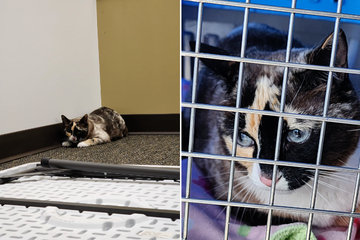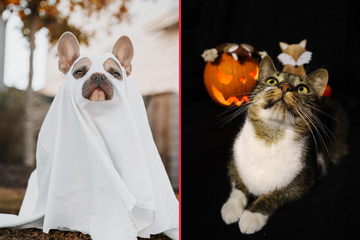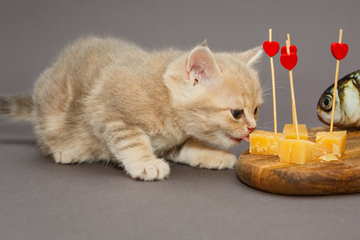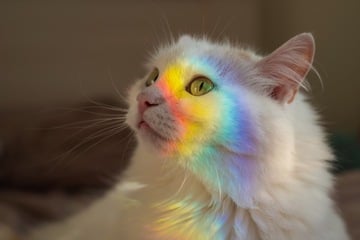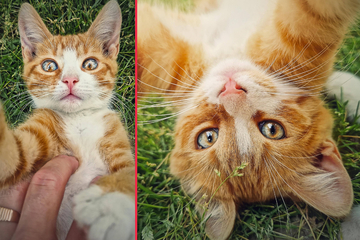National Black Cat Day: Why are black cats bad luck?
Black cats are often referred to as frightening and uncomfortable to be around, and many believe it's bad luck for one to cross your path. What's the reason behind the superstition? In honor of National Black Cat Day, we're diving in.
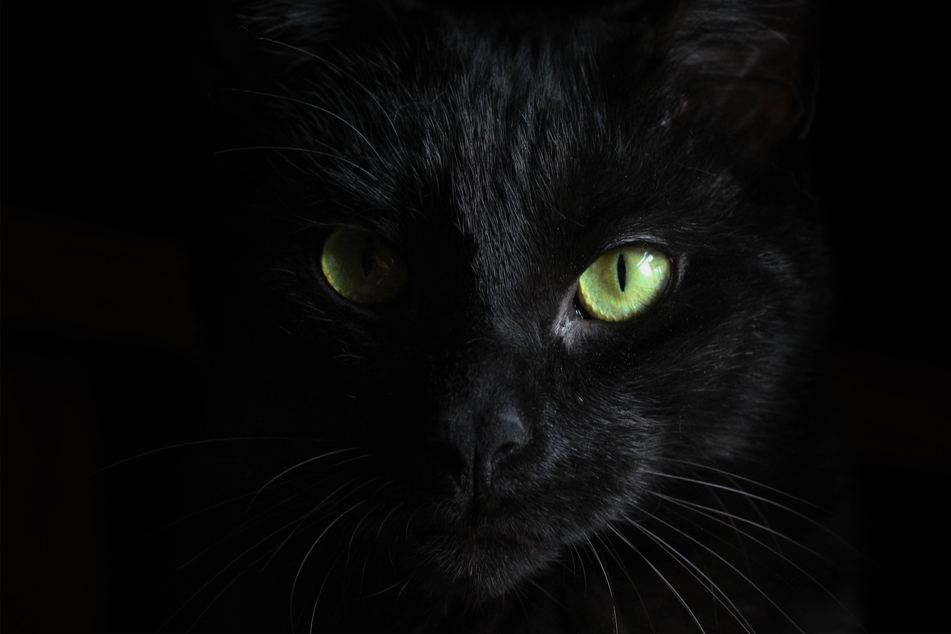
With so many years of being deemed the outcast, it's hard to blame a black cat for being angry at us humans.
Yet, they're some of the friendliest and sweetest feline friends to have ever wandered the Earth.
If they're so lovely, why are we scared of them?
It's time to guide you through a few myths about black cats, dive into the history, and take a good look at the reasons behind black cat superstitions.
Why are black cats bad luck? Let's find out!
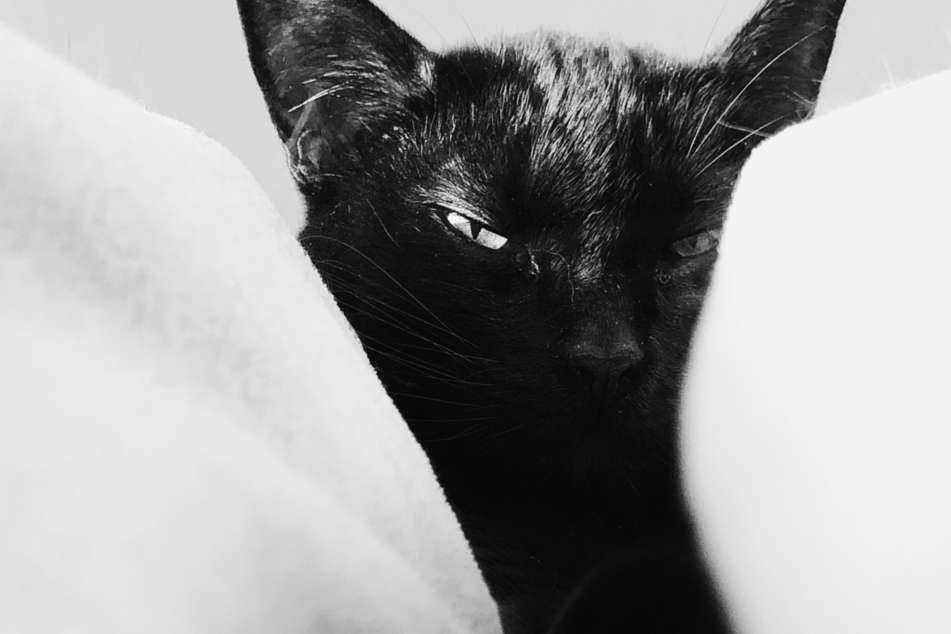
Behind the black cat superstition: Why are black cats unlucky?
The superstition and belief that black cats bring bad luck is one of the oldest and most historically fascinating in the world. Black cats are closely linked to Halloween in modern-day symbolism and are often featured as a spooky and slightly mysterious emblem of the holiday. But the association of black cats with bad luck stretches back hundreds upon hundreds of years.
If you look at the history of cats, it becomes quickly apparent that our relationship with these fluffy little dudes stretches back even further than the Ancient Egyptians, and has long been associated with the mystical. Cats began to spend time around humans, and humans around cats, when the former started killing off the pests that would feed on human grain stores.
This symbiotic relationship took hold as evolution continued to do its work, making cats possibly the first animals to have a non-prey-predator relationship with humans. As time went on, people started to get more sophisticated, language developed, and folklore began to emerge, as well as philosophy and religion.
It's in this context, in the long-seated place that cats have held in our history for thousands of years, that the black cat superstition emerged. Black cat myths were generally accepted as having begun in the 13th century, when Pope Gregory IX released the "Vox in Rama," which declared that black cats were an incarnation of Satan.
From here, things only got worse for black cats (and women), as dark-furred felines ended up being directly linked to witches in medieval Europe. Again, the connection was drawn between black cats and the devil, with many believing the witches and black cats to be in cahoots. This may have arisen from a complete coincidence – perhaps those accused of witchcraft often had black cats as pets.
Black cats were also thought to have spread the bubonic plague, which is ironic considering that rats were largely responsible. Again, the religious link was drawn to Satan, who was thought to have unleashed the scourge, and cats were rounded up and executed. Interestingly, the bubonic plague is still around today, but it isn't being spread by black cats.
In short, a historical and religious precedent set over thousands of years, due to a variety of factors, is the reason why black cats are considered unlucky.
Are black cats really bad luck?
No, of course not. There is no evidence that black cats cause any form of bad luck, or are even worse behaved than other-colored cats. Even the myth that orange cats are especially cheeky creatures has more substance in terms of actual evidence than superstitions surrounding black cats.
The reason for the continued fear comes down, in some part, to humans' need to explain unexplainable things that have happened to them. Many believe in good luck because something unexpectedly good happened, or in bad luck because they keep stubbing their toe, for instance. This forms the basis for black cat myths worldwide: false equivalencies and badly thought-through correlations.
As the famous saying goes: "Correlation does not equal causation." While witches may have often been in possession of black cats, and while Barbara down the road may have tripped and broken her ankle after a black cat walked in front of her, the black cats were most likely not causing "bad luck" even if they had something to do with the "bad" thing.
After all, Barbara could have just gotten distracted by the fast-fleeing feline, lost attention, and tripped, and maybe people started to believe that women were witches because they had black cats.
No cat of any color is bad luck. Let's leave behind the prejudices of the 13th century and live in the present.
Myths about black cats
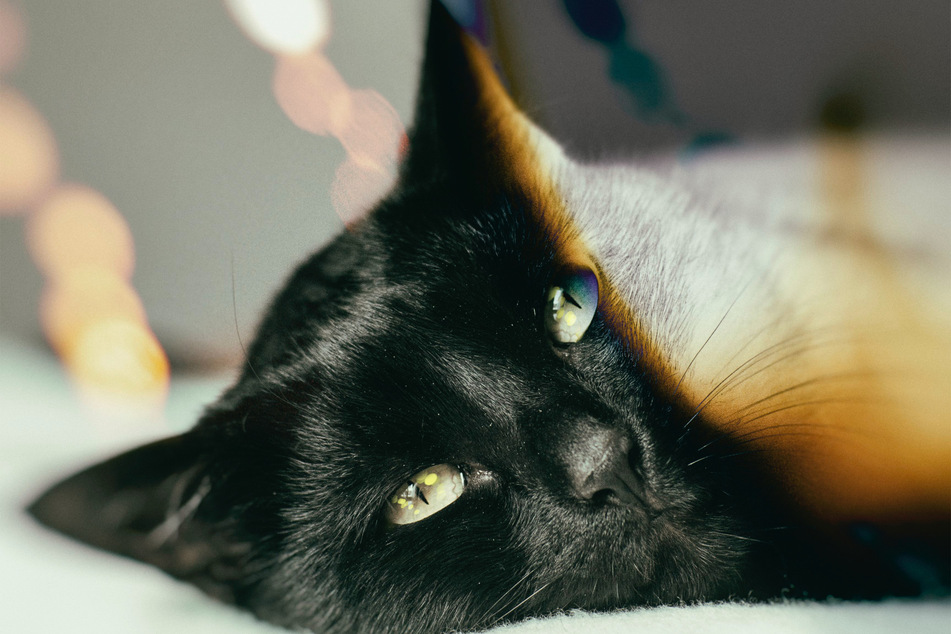
Black cats absolutely dominate folklore from across the world, not just in Europe and the United States. Some are more outlandish than others, but all are equally untrue and have equally little evidence to support them.
Here are some of our favorite myths about black cats:
- Black cats accompany witches and bring misfortune with them wherever they go. This is especially applicable if they cross your path.
- In Wales, elements of folklore suggest that black cats actually bring good luck, rather than bad.
- In some places, people believe that black cats can predict the weather.
- The Ancient Greeks believed that black cats were the reincarnation of Galinthias, who was transformed into a black cat as punishment for misdeeds done against Hercules.
- Cats don't accompany witches; they are actually the reincarnation of witches.
- Black cats are more difficult, more dangerous, and less friendly than other-colored cats. Unfortunately, this myth leads many to avoid adopting black kitties.
Black cats are not bringers of bad luck and misfortune. They are not the companions of witches, and neither do they predict the weather. They are just cats that are black – it really is that simple!
Seeing a black cat isn't bad luck, don't worry!
There's not really any such thing as bad "luck" because the idea of "luck" is fundamentally flawed. While bad things can happen, no matter what you do, something as innocuous as a black kitty walking in front of you is not the cause of that misfortune (unless, of course, you tripped over the cat and broke your leg).
Myths and strange occurrences that surround black cats are entirely based on a historical precedent that isn't even founded in science but rather in superstition. It's the 21st century, guys. Let's root our beliefs in scientific development, not the imaginary.
Cover photo: Unsplash/Hannah Troupe
